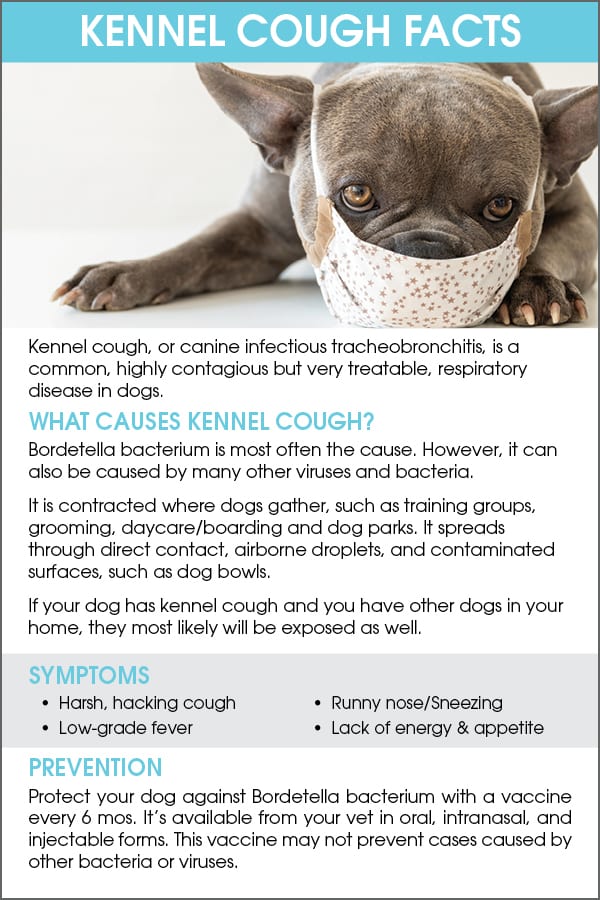In this article, we will explore the common puppy diseases that every pet owner should be aware of.
Key Takeaways:
- Puppies are susceptible to a variety of common diseases, including parvovirus, distemper, and kennel cough.
- Vaccinations are crucial in preventing these diseases and should be given according to a veterinarian's recommended schedule.
- Proper hygiene and cleanliness can help prevent the spread of diseases in puppies, such as regular handwashing and disinfecting their living areas.
- Early detection and prompt treatment are essential for managing puppy diseases effectively. Regular check-ups with a veterinarian can help identify any health issues early on.
- Education about common puppy diseases is important for all dog owners to ensure the well-being and longevity of their furry companions.
Common Diseases that Puppies Can Get
Puppies, like humans, are susceptible to various diseases. Some common diseases that puppies can get include parvovirus, distemper, and kennel cough. These diseases can have serious consequences if not treated promptly. It is essential for puppy owners to be aware of the symptoms and seek veterinary care as soon as possible.
Parvovirus is a highly contagious disease that affects a puppy's gastrointestinal system. It can cause severe vomiting, diarrhea, and dehydration. Puppies can contract parvovirus through contact with infected feces or contaminated objects. The virus is resilient and can survive in the environment for months, making it easy for puppies to come into contact with it.
Distemper is another dangerous disease that affects puppies. It attacks the respiratory, gastrointestinal, and nervous systems of a puppy's body. Symptoms of distemper include fever, coughing, nasal discharge, and seizures. Puppies can catch distemper through direct contact with an infected dog or by being exposed to contaminated surfaces.
How Puppies Get Common Diseases
Puppies can get common diseases through various means. One way they contract these illnesses is by coming into contact with other infected animals or their bodily fluids. For example, when a puppy sniffs or licks an infected dog's feces or urine, they may become exposed to harmful viruses or bacteria.
Another way puppies get common diseases is through exposure to contaminated environments. For instance, if a puppy plays in an area where an infected animal has recently been present, they may come into contact with infectious agents left behind.
In some cases, puppies may also inherit certain diseases from their parents if the parents were carriers of the illness. This highlights the importance of responsible breeding practices and ensuring that both the mother and father dogs are healthy and free from any diseases.
Understanding Parvovirus and Its Impact on Puppies
Parvovirus is a highly contagious disease that primarily affects puppies. It can have a severe impact on their health if not treated promptly. The virus attacks rapidly dividing cells in a puppy's body, particularly those found in the gastrointestinal tract, bone marrow, and immune system.
The symptoms of parvovirus include severe vomiting, bloody diarrhea, lethargy, loss of appetite, and dehydration. If left untreated, it can lead to organ failure and even death. Puppies with weak immune systems or those who have not received proper vaccinations are more susceptible to contracting parvovirus.
To prevent parvovirus infection, it is crucial to vaccinate puppies at the appropriate age. Vaccines stimulate the puppy's immune system to recognize and fight off the virus if exposed. It is also essential to keep puppies away from areas where infected dogs may have been and to practice good hygiene by regularly cleaning their living spaces.
Symptoms of Distemper in Puppies and Why it's Dangerous
Distemper is a highly contagious viral disease that affects puppies' respiratory, gastrointestinal, and nervous systems. It can cause a range of symptoms, including fever, coughing, nasal discharge, loss of appetite, diarrhea, seizures, and paralysis.
Distemper is dangerous because it weakens a puppy's immune system and makes them susceptible to secondary infections. It can also affect their neurological function, leading to long-term complications such as muscle twitches or even permanent damage.
Puppies with distemper require immediate veterinary care as there is no specific cure for the disease. Treatment involves supportive care to manage symptoms and prevent secondary infections. Vaccination is the most effective way to prevent distemper in puppies, and it is crucial to follow the recommended vaccination schedule provided by a veterinarian.
Kennel Cough: How Puppies Catch it and Signs to Watch For
Kennel cough, also known as canine infectious tracheobronchitis, is a highly contagious respiratory disease that affects puppies. It spreads easily in environments where dogs are in close proximity, such as kennels or dog parks.
Puppies can catch kennel cough through direct contact with infected dogs or by inhaling airborne respiratory droplets expelled by infected animals. The most common symptom of kennel cough is a persistent dry cough that may sound like the puppy is choking or gagging. Other signs include sneezing, nasal discharge, and mild fever.
While kennel cough is usually not life-threatening for healthy puppies, it can lead to more severe complications in young or immunocompromised individuals. Treatment typically involves rest, supportive care, and sometimes antibiotics if a secondary bacterial infection occurs.
The Effects of Lyme Disease on Puppies and How They Contract it
Lyme disease is caused by bacteria transmitted through the bite of infected ticks. While puppies are less likely to contract Lyme disease compared to adult dogs due to their limited exposure to outdoor environments, they can still be at risk if they spend time in tick-infested areas.
The effects of Lyme disease on puppies can vary but often include lameness due to joint inflammation, fever, loss of appetite, and lethargy. In some cases, it may cause kidney damage if left untreated.
To protect puppies from Lyme disease, owners should regularly check for ticks after outdoor activities and remove them promptly using tweezers or tick removal tools. Additionally, using tick preventive medications recommended by a veterinarian can help reduce the risk of infection.
The Importance of Vaccinating Puppies Against Rabies and Hepatitis
Vaccinating puppies against rabies and hepatitis is crucial for their health and well-being. Rabies is a viral disease that affects the nervous system and is almost always fatal once symptoms appear. It can be transmitted to humans through bites or scratches from infected animals.
Hepatitis, on the other hand, is a viral infection that primarily affects a puppy's liver. It can cause symptoms such as fever, vomiting, abdominal pain, and jaundice. In severe cases, it can lead to liver failure.
Vaccines for rabies and hepatitis are typically administered as part of a puppy's core vaccination series. These vaccines stimulate the immune system to produce antibodies that protect against these diseases. Following the recommended vaccination schedule provided by a veterinarian ensures that puppies receive adequate protection against rabies and hepatitis.
Preventive Measures to Protect Puppies from Common Diseases
There are several preventive measures puppy owners can take to protect their furry friends from common diseases:
- Ensure puppies receive their vaccinations on time according to the veterinarian's recommendations.
- Maintain good hygiene by regularly cleaning living spaces, food bowls, and toys.
- Avoid exposing puppies to potentially contaminated environments or areas where infected animals may have been.
- Practice tick prevention by using appropriate medications and checking for ticks after outdoor activities.
- Keep puppies away from sick animals or those with unknown vaccination status.
Caring for a Sick Puppy: What Owners Should Do
If your puppy becomes sick, it is essential to seek veterinary care promptly. Some steps you can take to care for a sick puppy include:
- Keep the puppy comfortable and provide a quiet and warm space for rest.
- Ensure they have access to fresh water and offer small, frequent meals if they have an appetite.
- Administer any prescribed medications as directed by the veterinarian.
- Monitor their symptoms closely and report any changes or worsening to the veterinarian.
- Follow any additional instructions provided by the veterinarian for managing the specific illness.
Remember, early detection and proper treatment are key to helping a sick puppy recover quickly. Always consult with a veterinarian for professional advice tailored to your puppy's individual needs.
| In conclusion | |
| Common Puppy Diseases: | Knowing about common puppy diseases is crucial for every new dog owner. By being aware of these illnesses, you can take the necessary steps to prevent them and ensure your puppy stays healthy and happy. |
| Regular Veterinary Check-ups: | Make sure to schedule regular check-ups with a trusted veterinarian to monitor your puppy's health, catch any potential diseases early on, and receive appropriate vaccinations. |
| Vaccination and Preventative Measures: | Follow your vet's recommended vaccination schedule and provide preventative measures such as flea
How common is it for puppies to get sick?Many newly adopted puppies often experience common health issues due to various factors. These can include the stress of being rehomed, the presence of parasites like worms and amoebae, bacterial and viral infections (such as the severe parvovirus), issues with their diet and nutrition, vitamin deficiencies, exposure to toxins, and even congenital problems. This is a common occurrence and should be addressed promptly. What is the sick puppy syndrome?Fading puppy syndrome is a condition that primarily impacts puppies who are less than 12 weeks old. These puppies, referred to as "faders," generally have a difficult time from birth or may initially show progress but then experience stunted growth and overall decline in health. Sadly, they have a high risk of not surviving beyond the first two weeks of life. Can a 9 week old puppy survive parvo?Fortunately, 85% of puppies infected with the virus can be successfully treated, although the treatment process can be lengthy and stressful. The even more encouraging news is that the parvovirus can be effectively eradicated in dogs through a simple vaccination given every two to four weeks until the puppy reaches 16 weeks of age. What is the first signs of parvo in a puppy?Signs of parvovirus can include tiredness, decreased appetite, stomach discomfort and swelling, high or low body temperature, throwing up, and severe, sometimes bloody, diarrhea. Continuous vomiting and diarrhea can lead to quick dehydration, and harm to the intestines and immune system can result in septic shock. When should I be worried about my puppy?Pay attention to changes in behavior that are not typical. If a puppy is usually energetic and responsive when being handled but suddenly becomes quiet and unresponsive, it may be a sign that they are feeling unwell. If a puppy starts to make more noise, such as increased whining or whimpering, they may be trying to communicate that something is wrong. What are the first signs of distemper in dogs?What are the signs of canine distemper? In the beginning, dogs infected with this disease will experience watery or pus-like discharge from their eyes. They will also have a fever, discharge from their nose, coughing, lack of energy, reduced appetite, and vomiting.
More Reads
Dr. Clara Bennett
Hello, fellow pet enthusiasts! I'm Dr. Clara Bennett, your go-to expert on all things pets. With a background in veterinary medicine and a passion for nutrition, I've spent years diving deep into the world of cats, dogs, birds, horses, and the products that keep them thriving. From the English countryside, I've witnessed the magic of animals and am here to share my knowledge, ensuring your pets receive the best care. Together, let's master the art of pet care!
All Posts »
Next Steps In Mastering Cat CareNext Steps In Mastering Dog CareJoin Our NewsletterSubscribe to receive our latest updates in your inbox! |















